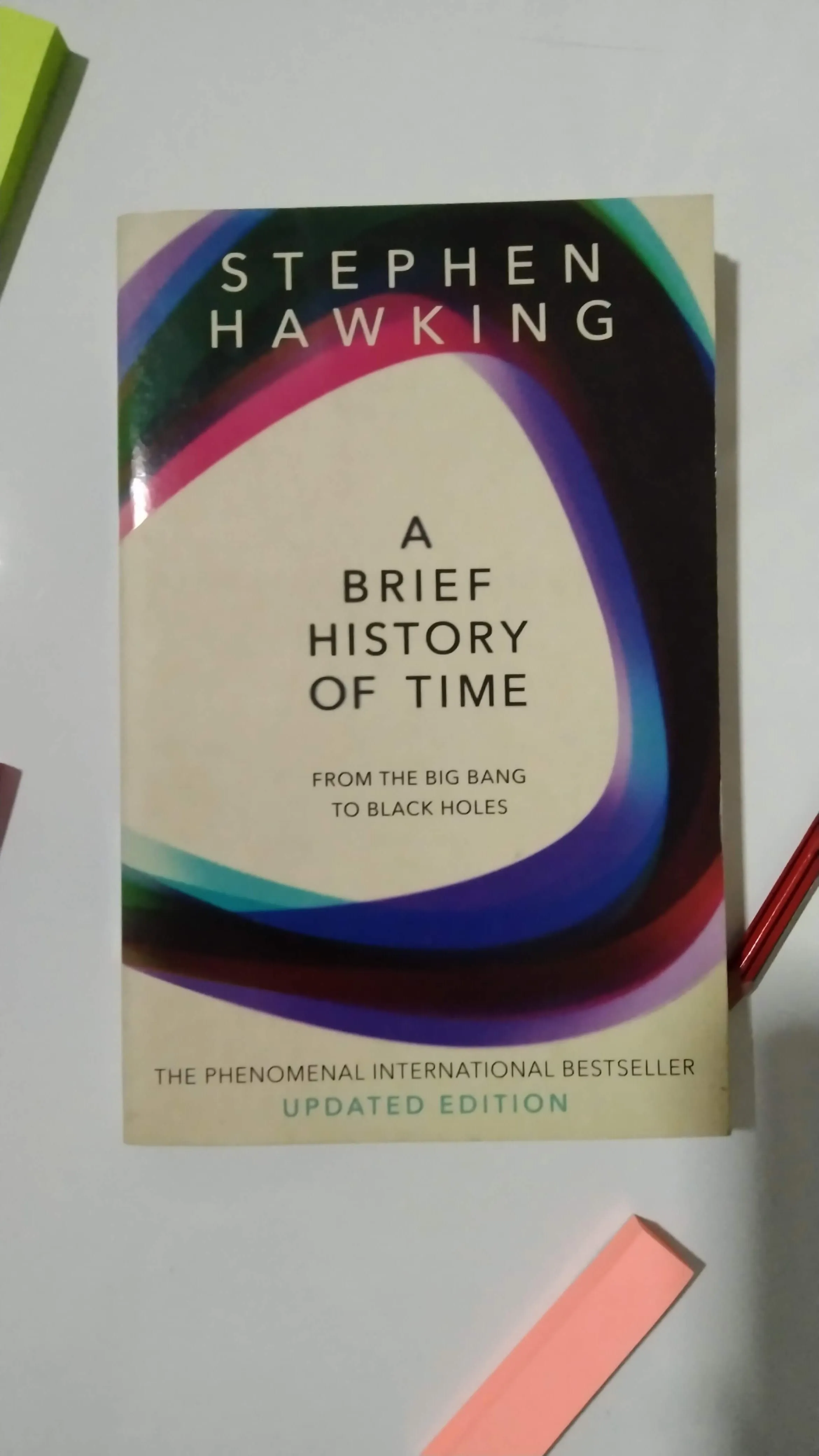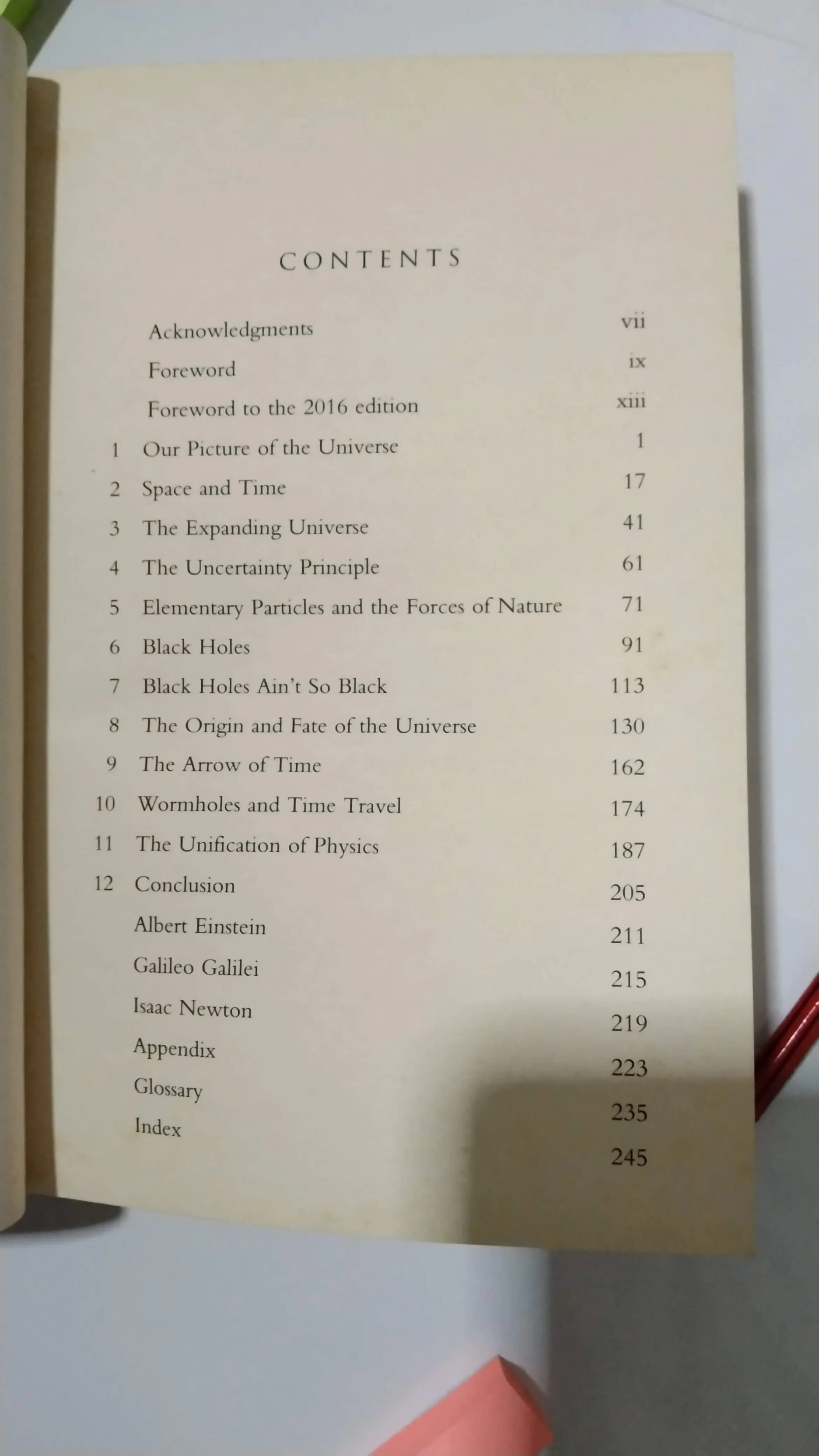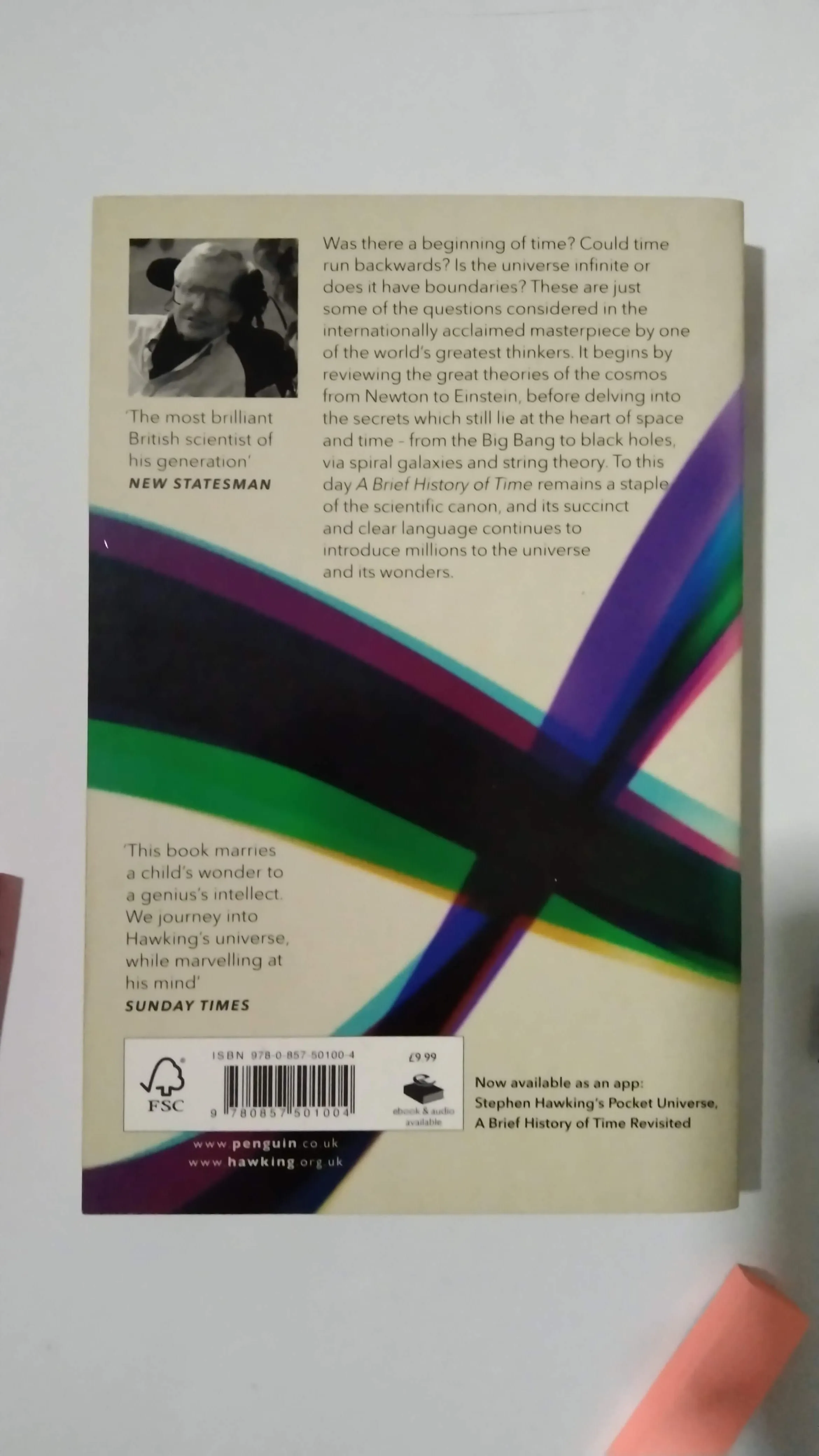A Brief History of Time
by Stephen Hawking
Presents a comprehensive and accessible introduction to the major concepts and theories of cosmology, physics, and the nature of the universe. It delves into the origins and evolution of the universe, the nature of space and time, and the fundamental laws of physics.



"The greatest enemy of knowledge is not ignorance, it is the illusion of knowledge."
- Stephen Hawking, A Brief History of Time
My Review:
Explores the fundamental nature of the universe and the concept of time. The book was first published in 1988 and has since become a classic in the field of science and popular culture.
In this book, Hawking delves into complex topics such as black holes, the Big Bang theory, and the laws of physics, presenting them in a clear and accessible manner for readers with no prior knowledge of science. He also touches on the philosophical questions that arise from our understanding of the universe and its workings.
Some of the lessons I learned from this book are:
- The history of the universe: Hawking explains the history of the universe, from its beginnings in the Big Bang to the present day.
- The concept of time: The author explores the nature of time, including its relationship with space and its role in the universe.
- Black holes: Hawking explains the concept of black holes, their formation and the incredible gravitational forces they exert.
- The laws of physics: The book provides an overview of the fundamental laws of physics, including the laws of thermodynamics, the laws of motion, and the laws of light and radiation.
- The Big Bang theory: Hawking provides a comprehensive explanation of the Big Bang theory and how it has been confirmed by scientific evidence.
- The theory of relativity: The author explains Einstein's theory of relativity, which revolutionized our understanding of space and time.
- The expansion of the universe: Hawking explores the current scientific understanding of the universe's expansion and how it is affecting the cosmos.
- The concept of space-time: The author explains the concept of space-time and how it is used to understand the universe and the laws of physics.
- The possibility of multiple universes: Hawking discusses the idea that there may be multiple universes, each with its own laws of physics and distinct characteristics.
- The future of the universe: The book concludes with a discussion of the future of the universe, including the eventual fate of the cosmos and the possibility of time travel.
Overall, I found A Brief History of Time to be a fascinating read, providing a clear and accessible introduction to some of the most complex ideas in science. The author's clear and concise writing style makes it accessible to readers of all levels, and the book's broad range of topics and scientific explanations make it a valuable resource for anyone looking to deepen their understanding of the universe and its workings.